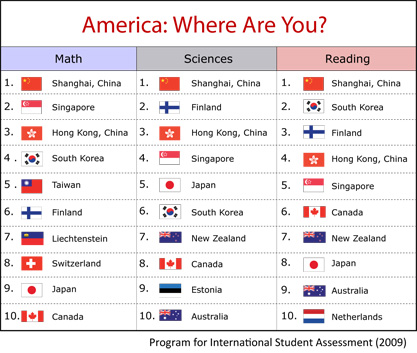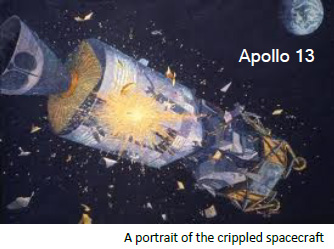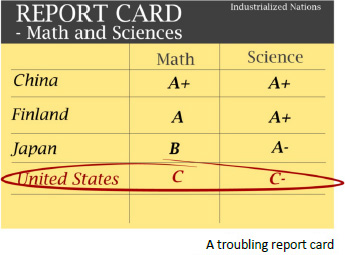Houston:
We Have A Problem!
A merica's education system has seen a steady decline in math and science performance when compared to the educational systems of other nations. Averaging the results of tests by The US Department of Education, the students of the industrial countries of Asia consistently score the highest in math and science. As a nation, we rank 23rd in science and 32nd in math. If we were to chart our performance on a report card, the U.S. would be lucky to squeak by with a "C".
References to America's historic quest and later conquest of space provide a historic appreciation for what was then, and is in some ways now, a "technology deficit" in terms of science education. Conjuring up images of the impending disaster that once threatened the crew of Apollo 13, we deliberately borrow phrases like "Houston: We have a problem" and "Failure is not an option" to help illustrate the urgency we feel in addressing this issue.



As a result, our country is not producing the amount of engineers it once did. American industry is increasingly having to go abroad to find qualified engineers and technical staff. It is reasonable to conclude that this is contributing to our country's shrinking industrial base, high unemployment and trade deficits.
The Program for International Assessment (PISA) is an internationally standardized assessment that was jointly developed by participating countries and administered to 15-year-olds in schools as they near the end of compulsory education. The assessment goes beyond a simple mastery of school curriculum to obtain a relative gauge of acquired skills and knowledge that are deemed essential for full participation in society as adults. The program is administered by the U.S. Department of Education with the full cooperation of the American Federation of Teachers, the National Education Society and others. Although participation in the program is voluntary, the assessment provides a relative comparison of educational achievement among participating nations.













































